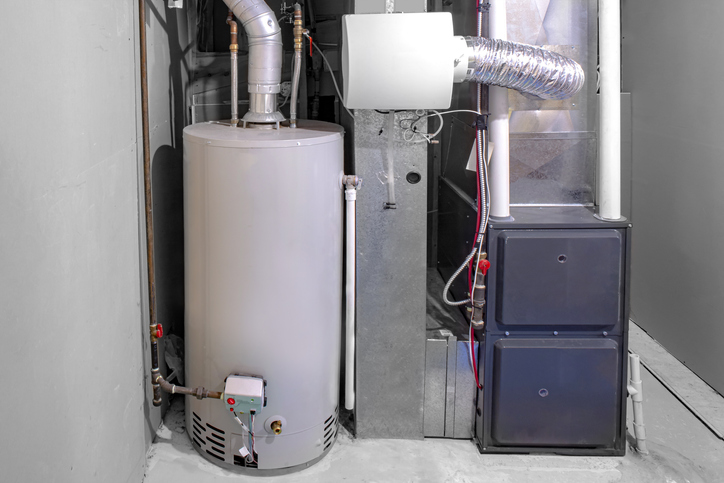Does your heater smell like burning plastic, mildew, or sulfur? If so, you need to identify the cause and fix the issue right away. A burning smell coming from your heater could indicate damaged HVAC system parts or electric problems, or it may even signal the presence of foreign objects within the system. Some odors result from issues that require furnace repair. Our HVAC technicians will help differentiate these smells and identify the correct course of action.
Keep your heating system functioning properly, and prevent smells from your heater with Spoor's Heating & Air Conditioning. We offer a wide range of home HVAC and heating services and products. Contact our HVAC company to schedule heating services.

Dusty Or Burning Smell
If your heater gives off a burning smell, it could be burning dust. If you haven't used your heater in a long time, it can accumulate dust and other particles on internal components, such as the heat exchanger or the burner. When you turn on your heater, the dust burns off, creating an odor that fills the air through your home's air vents. In most cases, the smell of burning dust will dissipate as the heating system continues to operate. However, if this odor persists, you should contact our HVAC contractors for a prompt system assessment. It's likely your unit is overdue for heating system maintenance.
Dirty Socks Or Mildew Smell
In most cases, when a heating system gives off an odor resembling the smell of dirty socks or mildew, it's not dangerous, but it is not a great sign for the state of your unit either. If your home smells like a locker room when you turn on your heater (and you have a heat pump), then the issue could be an accumulation of bacteria on your system's indoor coils. But if you experience this smell and have a furnace, don't worry. Bacteria don't usually build up within furnaces because the furnace's internal components reach temperatures high enough to exterminate existing bacteria. Heat pumps cannot produce temperatures as high as furnaces; they, instead, transfer heat from the outdoors and move it into the home because heat pumps rely on outdoor temperatures to produce heated air. And, since outdoor temperatures are relatively low in the winter, heat pump coil temperatures typically only reach 105–130 degrees Fahrenheit, which is the ideal temperature range for microorganism and bacteria activity. The best way to approach this issue is by contacting Spoor's Heating & Air Conditioning to inspect and clean your heater's coils.
Rotten Eggs Or Sulfur Smell
The smell of rotten eggs or sulfur within your home when you turn on your heater is not normal, nor is it safe. Concerning your heating system, a rotten egg or sulfur smell typically is produced only by gas furnaces and could indicate a gas leak, which may result in a fire or explosion. As you might expect, this requires immediate professional attention! Gas furnaces are fed natural gas through enclosed gas lines. When gas ignites safely within the furnace, it creates heat that effectively warms your home. When gas ignites improperly due to leaks in the gas line or the furnace itself, it can leak into the home. A small spark is all it takes for a gas leak to turn into a deadly explosion inside your home. Evacuate your home immediately, and call a professional right away.
Burning Electrical Smell
An electrical burning smell, such as burning wires, from your heater is another odor that could be dangerous for you and your loved ones to inhale or it might signify a more significant problem with your heating system. Possible causes of this odor include an overheated blower motor. The automatic shut-off feature within your heating system is an important safety feature that causes the unit to shut down. Should this feature malfunction, the heater can reach dangerous temperatures and give off a burning smell. Another potential cause of this smell is burning electrical wires. The wires in your heater may be burning or frayed due to damage to these components or defective components. A third possibility is a cracked heat exchanger. The cracked heat exchanger is the heater component responsible for heating the air. Should the tubes of coils within the heat exchanger become cracked or damaged, they can leak out toxic or harmful gasses that emit this burning odor. Depending on the exact cause of the smell, you could quickly end up with an electrical fire or a dead motor. Have a professional inspect the system right away to find and fix the source of the smell.
